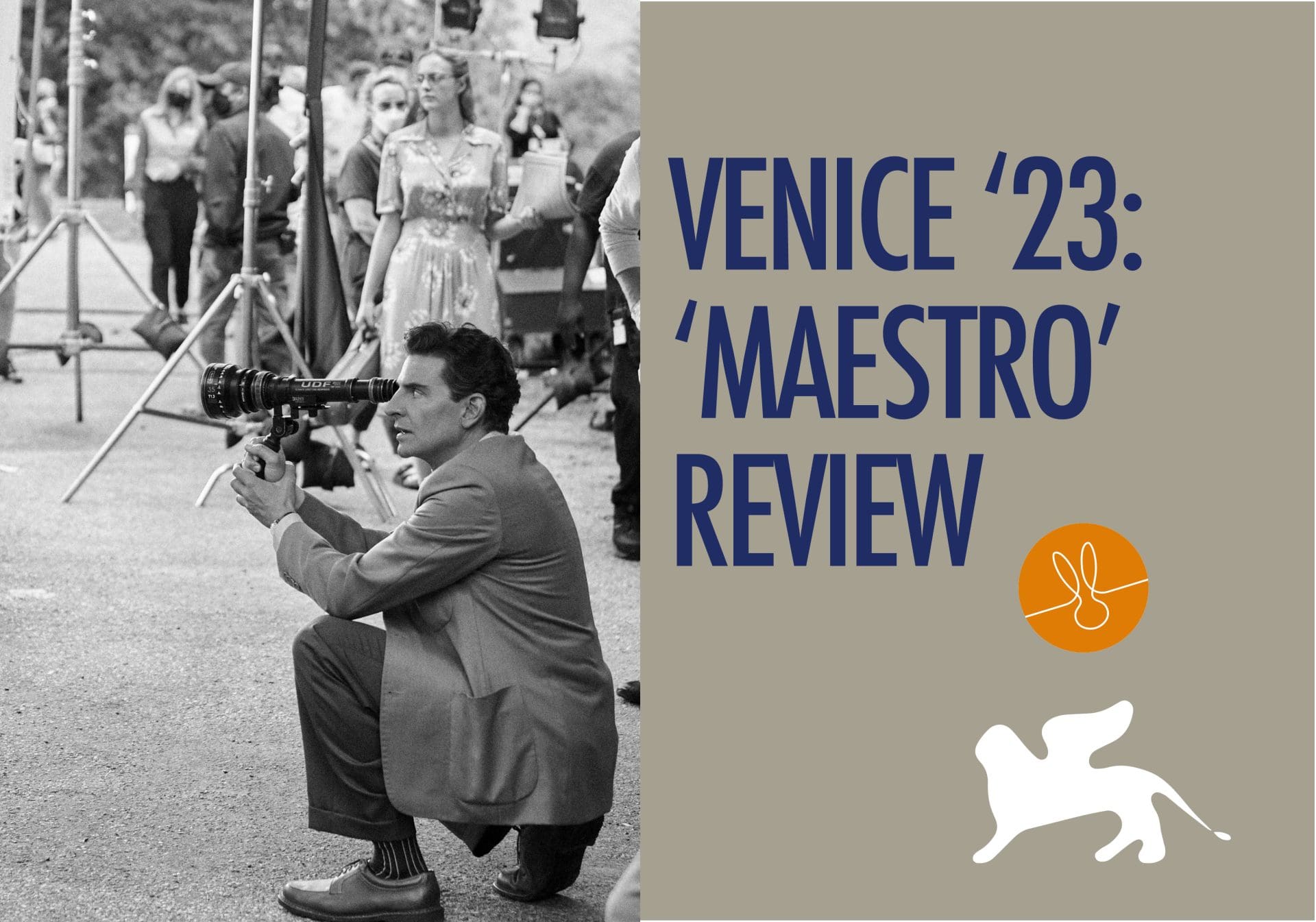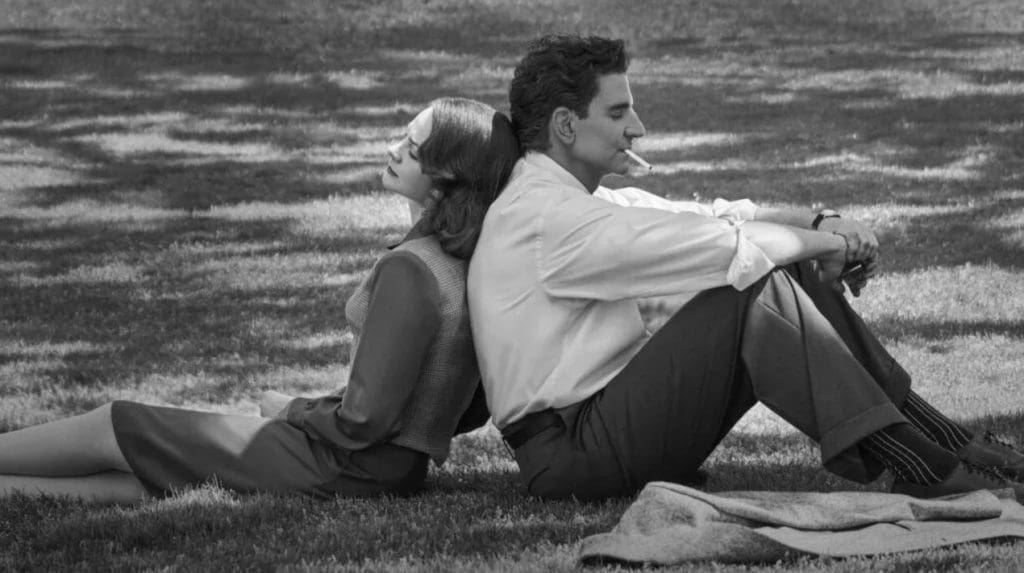
Maestro is not a film about Leonard Bernstein’s career. It is about soulmates, and the life they share and create together. It is also evidence that Bradley Cooper has made the switch from actor to director with sublime ease.
Of course, Bernstein’s life and work, his genius and his scandals, form the skeleton of which Maestro‘s story builds from, but it is as much about Felicia Montealegre, the partner he spent his life with—who is played with an Oscar worthy performance by Carey Mulligan. Over the course of the film, we are shown how love (for better and worse) can transform who we are, and with no one is this more apparent than with Felicia, who we meet as a naive, but pure and ambitious actress drawn to Bernstein’s bolstering, charismatic madness.
As a character study of two people, and how they are altered by the life they share together, Cooper does a great job of presenting new habits and attitudes they pick up through their marriage. Felicia is expected to wait in the wings and sacrifice her dreams for Bernstein. Her husband on the other hand battles with his sexuality, and his constant temptations for younger men. As we get to know both of them better, hints are dropped that go some way in explaining their behaviours without being too on-the-nose (pun certainly not intended). Why has Cooper decided to show us Bernstein with a cigarette forever in his hand? This simple device finds a deeper meaning when we understand the darkness inside of him. Perhaps it’s a coping mechanism for the traumas of his youth. Maybe it’s because he is always moving, doing something. Later on, when Felicia and Leonard’s marriage hits the rocks, she begins taking up the habit too. As the couple fall in love, there’s an emphasis on how beautifully they can communicate with one-another—almost in a way that feels theatrical, but in troubled times, their dialogue switches to a painfully familiar, naturalistic awkwardness, and it would be interesting to know whether these moments had some improvisation.
This is because no decision Cooper has made here feels wasted or without any intention. Maestro is a very tightly composed film, which has enough allegory and beautiful photography in each scene to impress an attentive audience, and the right amount of razzmatazz and crowd-pleasing musical segments to cross over the mainstream.
But Maestro will be remembered for the incredible chemistry between Cooper and Mulligan. They immerse themselves in the story of two people, brought together in a fairly tale encounter, then unable to bear each, but unable to live without one-another for the rest of their lives either. Through Cooper’s film, neither are maligned for their personal failings. In fact, it makes them more relatable, so when tragedy inevitably arrives, it hits hard, because we’re not watching Leonard Bernstein and Felicia, but two people. How Cooper was able to direct a film this early in his career so touching and entertaining is a masterstroke within itself.

Check out more of our Venice ’23 coverage here!



